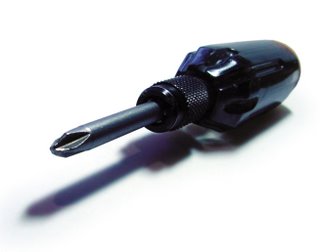A Letter to the House of Bishops of The Episcopal ChurchSt. Matthew’s Day, 2006
Dear Sisters and Brothers in Christ:
We, the undersigned bishops, have met together at Camp Allen in the Diocese of Texas from September 19-22. We understand ourselves to be catholic bishops within the Anglican Communion and have met to contribute to our future life within this Communion. We are writing to you as fellow bishops in The Episcopal Church, in the knowledge that many others in our Province and around the world have expressed an interest in this meeting.
We have gathered with a common desire to work for the unity of the Church, as well as for the integrity and vitality of our own Province and the Anglican Communion as a whole.
We are grateful for the helpful briefing from the Archbishop of Canterbury, brought to us through the Bishops of Durham and Winchester. We have corresponded in turn with the Archbishop and communicated our hopes with respect to continuing in full constituent Communion membership. It is our intention to offer a faithful and dynamic witness within the Episcopal Church.
We confess our faith in Jesus Christ as the Way, the Truth and the Life – the faith that is uniquely revealed in the Holy Scriptures, set forth in the catholic Creeds, and to which the historic Anglican formularies bear witness.
We are committed to the conciliar character of our Communion. Consistent with the Archbishop of Canterbury’s Holy Cross Day letter to the Primates, it is our clear sense that General Convention of 2006 did not adequately respond to the request made of The Episcopal Church by the Communion through the Windsor Report and the Primates at Dromantine. These requests include explicit moratoria regarding church discipline and order. We express our regret, on behalf of ourselves, for those actions with which the Windsor Report was concerned.
We accept and affirm the Windsor Report and view adherence to it as furthering the vocation to heal the breaches within our own Communion and in our ecumenical relationships. Furthermore, we endorse the recommendation of the Windsor Report, as supported by the Archbishop of Canterbury, for the development of an Anglican Covenant.
The Windsor Report properly belongs within the larger framework of Anglican teaching, as expressed, not least, in successive Lambeth Conferences, including the resolutions of Lambeth 1998 (among which is Resolution 1.10). We understand this to be the mind of the Communion for teaching and discipline.
We recognize that many congregations within The Episcopal Church need a safe space within which to live out the integrity of their faith in compliance with the Windsor Report. We also recognize that there are some congregations that do not accept the provisions of the Windsor Report. We pledge ourselves to work with our Episcopal colleagues to care for all God’s people in our dioceses.
Within our group are needs for various levels of response to the conflicts in the church. While here we have worked diligently to achieve unity across these lines. We recognize the need of some among us for an alternative primatial relationship. This recognition does not weaken our fundamental theological and ecclesial commitments. Rather, our unity has strengthened them, and for this we thank God.
It is our hope and prayer that through our fellowship we can contribute to the renewal of our Province’s life within the Communion. We invite others who share our concern and position to join us in our common work on behalf of the church, and we plan to meet again early in the new year. We hope that those of you who share our commitments will find yourselves able to join us then, as we continue our work.
We ask for your prayers and assure you of ours.
In the name of Christ Jesus,
The Rt. Rev. Mark L. MacDonald, Diocese of Alaska
The Rt. Rev. William H. Love, Diocese of Albany
The Rt. Rev. John W. Howe, Diocese of Central Florida
The Rt. Rev. James M. Stanton, Diocese of Dallas
The Rt. Rev. Jack L. Iker, Diocese of Forth Worth
The Rt. Rev. Michael G. Smith, Diocese of North Dakota
The Rt. Rev. Edward S. Little, Diocese of Northern Indiana
The Rt. Rev. C. Wallis Ohl, Jr., Diocese of Northwest Texas
The Rt. Rev. Robert W. Duncan, Diocese of Pittsburgh
The Rt. Rev. Keith L. Ackerman, Diocese of Quincy
The Rt. Rev. Geralyn Wolf, Diocese of Rhode Island
The Rt. Rev. Jeffrey N. Steenson, Diocese of Rio Grande
The Rt. Rev. John-David Schofield, Diocese of San Joaquin
The Rt. Rev. Edward L. Salmon, Diocese of South Carolina
The Rt. Rev. John B. Lipscomb, Diocese of Southwest Florida
The Rt. Rev. Peter H. Beckwith, Diocese of Springfield
The Rt. Rev. Bertram N. Herlong, Diocese of Tennessee
The Rt. Rev. Don A. Wimberly, Diocese of Texas
The Rt. Rev. James M. Adams, Diocese of Western Kansas
The Rt. Rev. D. Bruce MacPherson, Diocese of Western Louisiana
The Rt. Rev. Gary R. Lillibridge, Diocese of West Texas

















